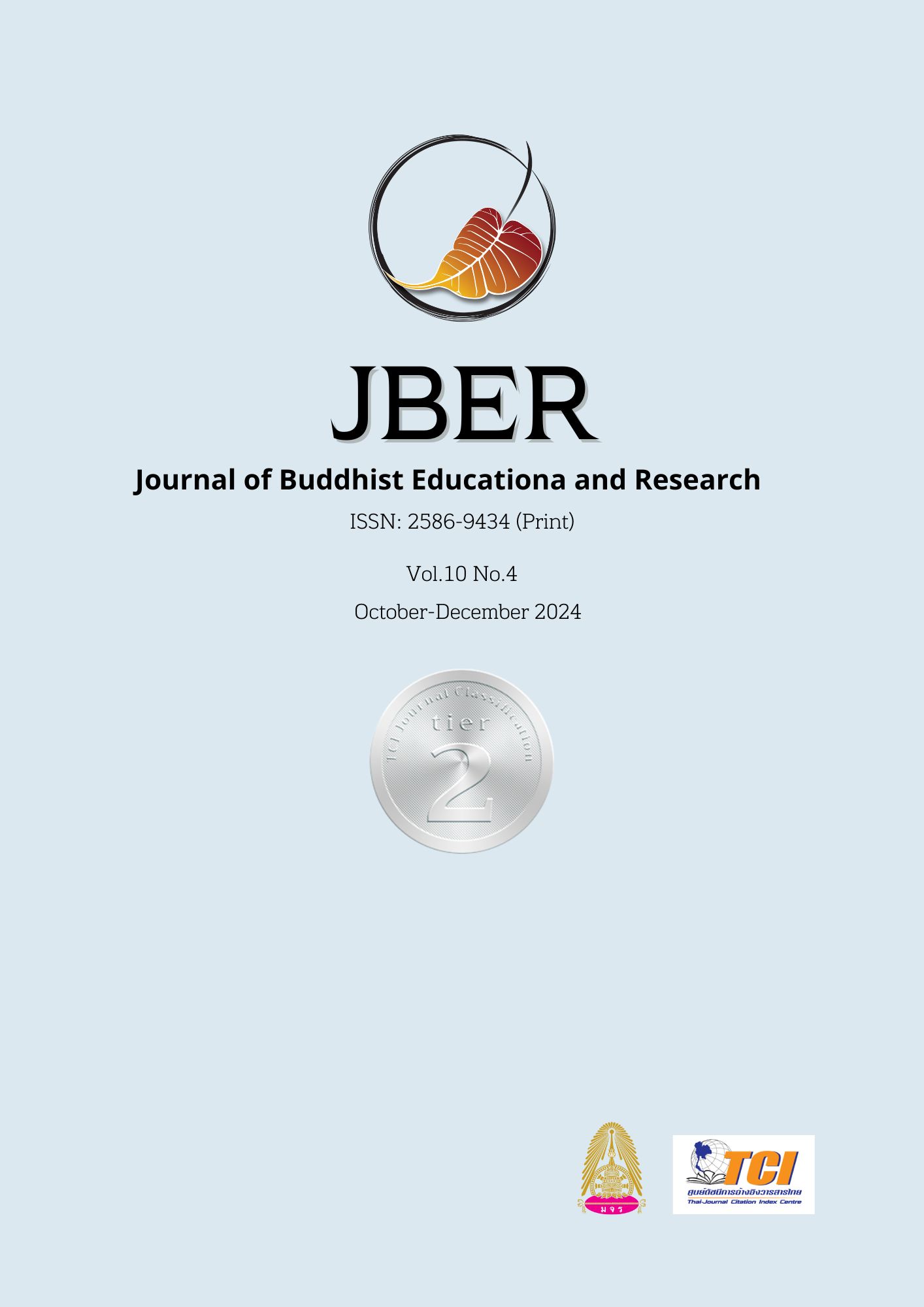The Guidelines for Driving Happy Schools Under the Secondary Educational Service Area Office Bangkok 2
Keywords:
Driving, Happy Schools, Secondary Educational Service Area Office Bangkok 2Abstract
The objectives of this research were to: 1) examine the level of happy school implementation in schools under the Secondary Educational Service Area Office Bangkok 2, 2) identify factors influencing the implementation of happy schools, and 3) propose guidelines for promoting happy school initiatives. This mixed-methods study involved 361 participants, comprising 15 school administrators and 346 teachers, selected through stratified random sampling. A questionnaire with a reliability coefficient of 0.987 was used as the research instrument, and data were analyzed using mean, standard deviation, and multiple regression analysis. The findings indicated that: 1) the overall level of happy school implementation and its individual aspects were rated at the highest level, 2) age and experience were statistically significant factors influencing the happy school drive at the .05 level, while gender, position, and educational consortium showed no statistical significance, and 3) guidelines for driving happy schools included primary approaches such as personnel capacity development and human resource management based on expertise, as well as supporting strategies like promoting gender equality in schools, integrating work across positions, and fostering collaboration between educational consortiums.
References
กระทรวงศึกษาธิการ. (2563). นโยบายและยุทธศาสตร์การพัฒนาการศึกษาของกระทรวงศึกษาธิการ ปีงบประมาณ พ.ศ. 2563-2565. สำนักงานปลัดกระทรวงศึกษาธิการ.
ชินกฤต ศรีสุข และคณะ. (2567). การพัฒนากลยุทธ์การบริหารโรงเรียนแห่งความสุขสังกัดสำนักงานเขตพื้นที่การศึกษามัธยมศึกษากรุงเทพมหานคร เขต 2. Journal of Roi Kaensarn Academi, 9(7), 445 - 463.
พัตร์นิวรรณ ศิริภูมิ และชนมณี ศิลานุกิจ. (2567). องค์กรแห่งความสุขในสถานศึกษาตามความคิดเห็นของครู โรงเรียนสังกัดกรุงเทพมหานคร กลุ่มกรุงเทพตะวันออก. วารสารนิติรัฐ, 2(1), 36 – 47.
รุจิกร ตุลาธารและนุชนรา รัตนศิระประภา. (2567). ภาวะผู้นำการเปลี่ยนแปลงของผู้บริหารกับการเป็นองค์กรแห่งความสุข ของโรงเรียนสังกัดสำนักงานเขตพื้นที่การศึกษามัธยมศึกษากาญจนบุรี. วารสาร มจรบาลีศึกษาพุทธโฆสปริทรรศน์, 10(2), 204 – 221.
วิจารณ์ พานิช. (2556). การสร้างการเรียนรู้สู่ศตวรรษที่21. กรุงเทพฯ: โรงพิมพ์มูลนิธิสยามกัมมาจล.
สำนักงานกองทุนสนับสนุนการสร้างเสริมสุขภาพ. (2560). โรงเรียนสุขภาวะ การศึกษาแบบนวัตกรรมยุคใหม่ (Healthy School). เข้าถึงได้จาก https://dol.thaihealth.or.th/Media/Index/591e0f31-e19d-e711-80e3-00155d65ec2e
สำนักงานเลขาธิการสภาการศึกษา. (2560). แผนการศึกษาแห่งชาติ พ.ศ. 2560 – 2579. กรุงเทพมหานคร:พริกหวานกราฟฟิค จำกัด
สำนักงานเลขานุการของคณะกรรมการยุทธศาสตร์ชาติ. (2561). ยุทธศาสตร์ชาติ พ.ศ. 2561-2580. กรุงเทพฯ : สำนักงานคณะกรรมการพัฒนาการเศรษฐกิจและสังคมแห่งชาติ.
อุทัยวรรณ ศรีรัตน์, และมัทนา วังถนอมศักดิ์. (2563). การเป็นโรงเรียนแห่งความสุขของโรงเรียนชุมชนบ้านหนองฝ้าย. วารสารการบริหารการศึกษา มหาวิทยาลัยศิลปากร, 11(2), 17 – 31.
อุทัยวรรณ ศรีรัตน์. (2562). การเป็นโรงเรียนแห่งความสุขของโรงเรียนชุมชนบ้านหนองฝ้าย. วิทยานิพนธ์การศึกษามหาบัณฑิต สาขาการบริหารการศึกษา. มหาวิทยาลัยศิลปากร
Fullan, M. (2007). The New Meaning of Educational Change. New York: Routledge.
Kenneth Leithwood and Jingping Sun. (2018). Academic culture: a promising mediator of school leaders’ influence on student learning. Journal of Educational Administration, 56(4), 350 – 363.
Nonaka, I. and Takeuchi, H. (1995). The Knowledge-Creating Company: How Japanese Companies Create the Dynamics of Innovation. New York: Oxford University Press.
UNESCO. (2016). Happy Schools! A Framework for Learner Well-being in the Asia Pacific. Retrieved from https://unesdoc.unesco.org/ark:/48223/pf0000244140
United Nations. (2015). Transforming our world: The 2030 agenda for sustainable development. New York: United Nations
Downloads
Published
How to Cite
Issue
Section
License
Copyright (c) 2024 Journal of Buddhist Education and Research (JBER)

This work is licensed under a Creative Commons Attribution-NonCommercial-NoDerivatives 4.0 International License.





